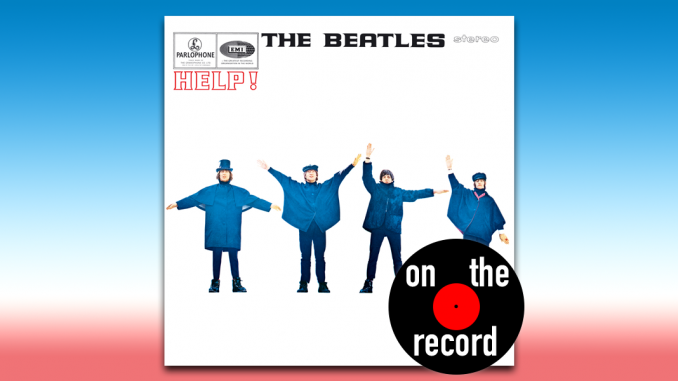
When Beatlemania arrived on the planet, no one had ever seen anything like it. People had spent years huddled around family radios, sure, but suddenly a quartet of young men became ingrained into the culture and identities of young people. Teenage girls screamed at the top of their lungs, aching to be noticed by one of the band members. These young fans became known as the Beatlemaniacs, and I have always been one of them.
I spent last weekend mucking about Liverpool, the city famous for birthing the Fab Four. It was a childhood dream come true. I popped into the Cavern Club for a set, took photos of the Penny Lane street sign, and peered through the red wrought-iron gates of Strawberry Fields. The city itself has a long history of shipping, and was also once considered the “gateway” to America for many immigrants heading west, but these days, it’s mostly populated by music tourists. For the Beatles, this was where things started, but for fans, it’s where a small amount of time travel can happen.
I’ve always been interested in how bands grow and change over their time together. Groups that make album after album, year after year, inevitably end up sounding entirely different from when they started, and it’s the space in between that prompts questions. Different producers get brought in, studio locations change, spiritual awakenings occur, money’s lost or gained — but at the end of it all, it’s the same band. (Assuming the members have remained consistent, but how often does that happen?) You end up with “eras” of a band, and The Beatles are perhaps the kings of this. I get asked all the time whether I prefer early or late Beatles — “Love Me Do” versus “Let It Be” — and I always confidently state that it’s the transitional Beatles that speak to me the most.
For this last week, I listened to their fifth studio album, released in 1965, Help!. The cover features the Fab Four posing with their arms, semaphore style — the outline of which I got tattooed on my inner arm in Liverpool, as if my devotion wasn’t already clear.
This is 1965, quite literally the middle of the swinging 60’s, but it’s also a metaphorical crossroad for the band. Tracks like “Dizzy Miss Lizzy,” a Larry Williams cover, remind us of the straight-up rock’n’roll teens The Beatles started out as, but it’s songs like “The Night Before” and “Another Girl” that feel like a good bridge from their last album A Hard Day’s Night. It makes sense: there’s just enough upbeat rock’n’roll to please the early Beatles fans, but a different sound is beginning to take shape. Help! feels like a pot of water just at the cusp of boiling.
For one thing, the songwriting is changing direction. George Harrison’s “I Need You” foreshadows some of the later greatness he would go on to write (But imagine if his musical creativity had been allowed to flourish in the early years.) And lest we forget, this is the album that features “Yesterday.” Fans had been used to cute pop tunes like “Please Please Me” and “I Saw Her Standing There,” but with Help!, the songwriting was maturing. Coupled with tighter vocal harmonies, The Beatles were growing up.
For another thing, Help! seems to set the stage for the upcoming band decision to quit touring. “When I was younger, so much younger than today, I never needed anybody’s help in any way,” they sing. “But now these days are gone, I’m not so self-assured. Now I find I’ve changed my mind and opened up the doors.” Gigging at one point in time, back in the dance halls of Liverpool, had meant throwing together a few hours of music and hauling some gear to the venue. Now, in 1965, it meant massive stadiums and shifty getaway cars designed to avoid the hordes of teen girls. It had become too much. The band played their last live show in August of 1966.
And then, indeed, the doors opened. The Beatles of the latter half of the 60s took their original influences and ran with them, writing more complicated songs and constructing albums that didn’t play by the rules. If you’re interested in hearing a band in transition, look no further than Help!.
And speaking of opened doors, I must thank my remarkable editors at The Vanguard, who were gracious and trusting enough to give On the Record a shot this semester. I’ve had a brilliant time putting it together each week, and am looking forward to the spring. Happy holidays, Brooklyn College.
